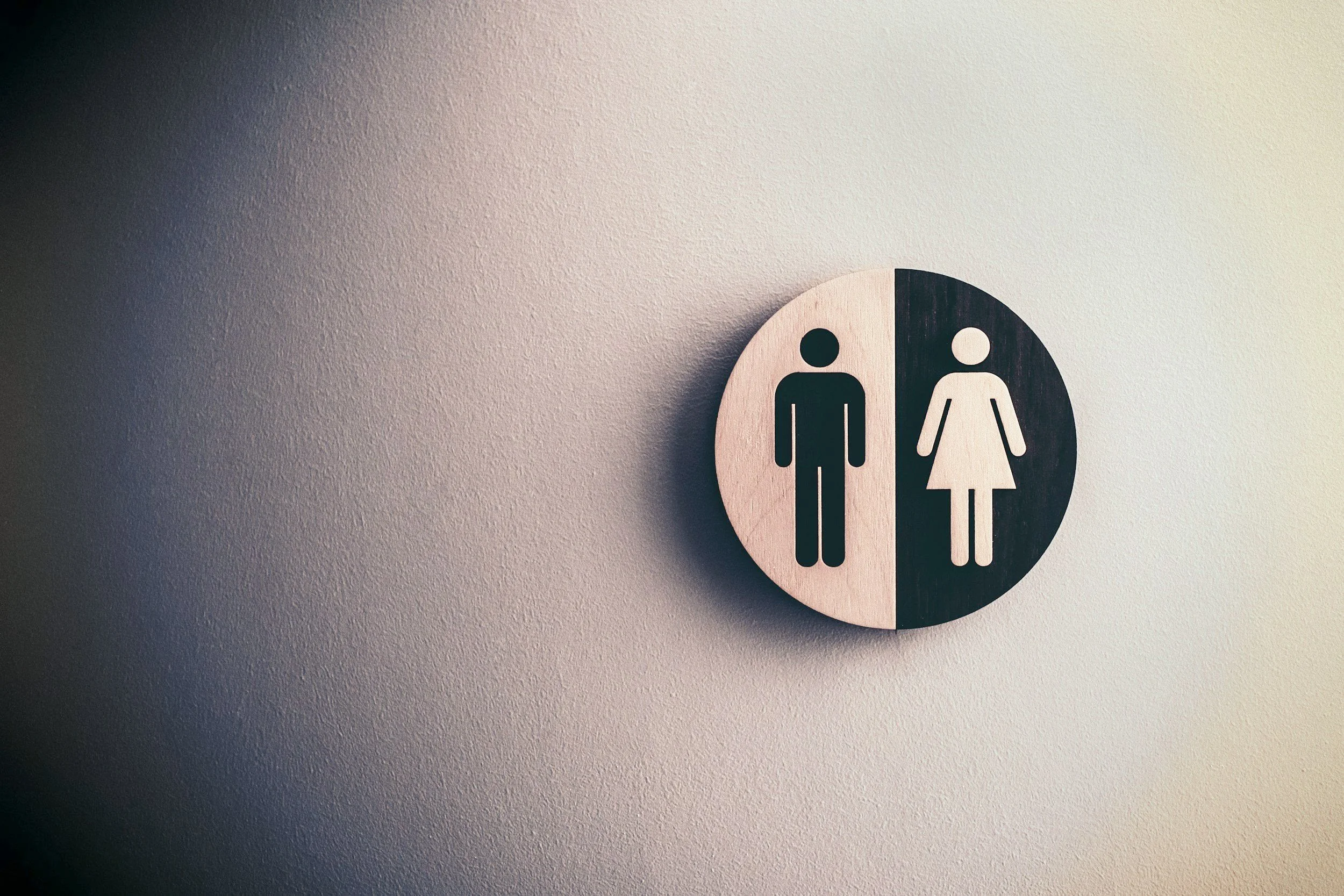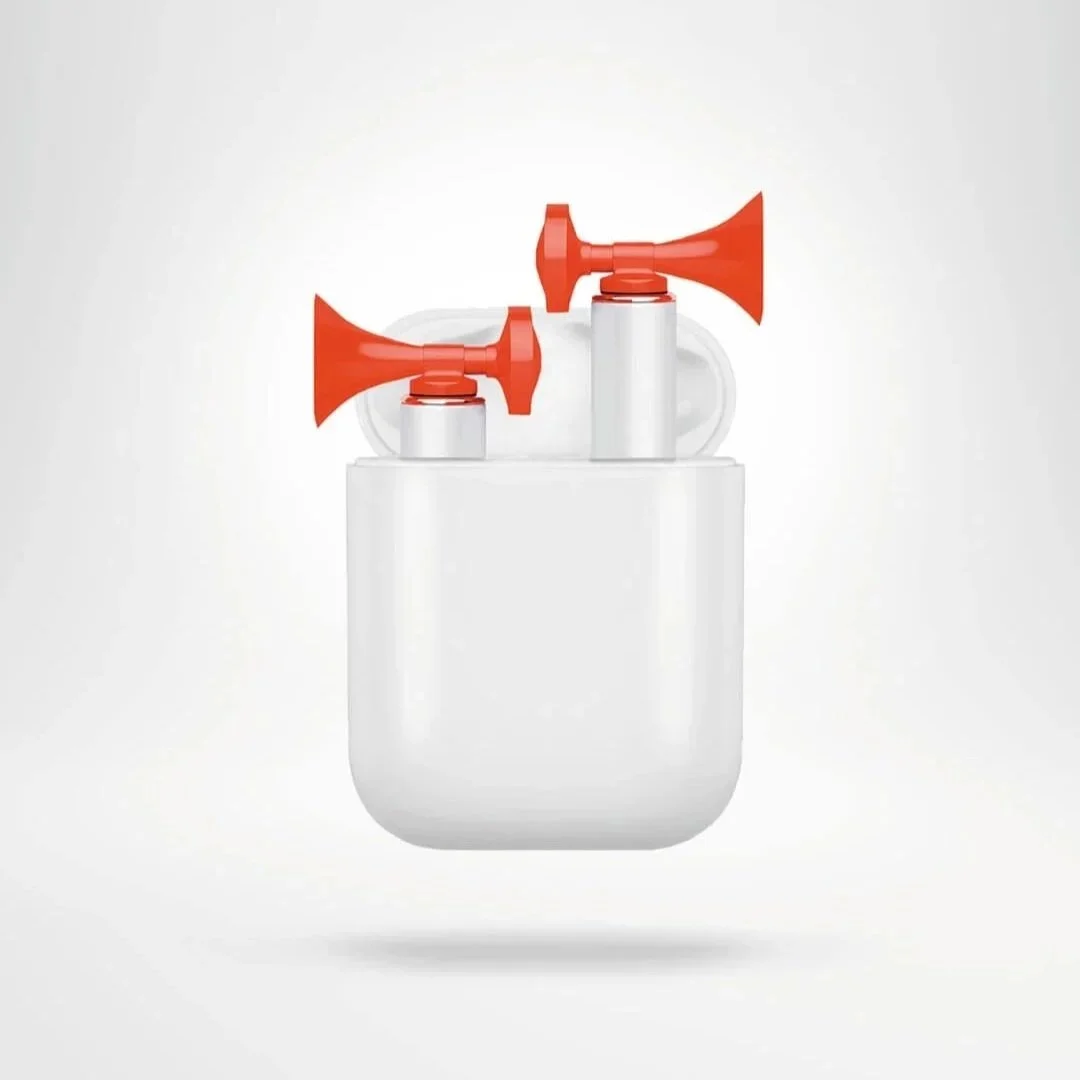A recent study has confirmed what we always knew: Men don’t listen in the same way women do—but not for the reasons many of us think.
Credit: @timmossholder/Unsplash
(Desplácese hacia abajo para ver la traducción al español.)
The findings from the paper in Scientific Reports revealed that biological sex has a big impact on hearing sensitivity, coupled with environmental and other factors.
Jenn Schumacher, Au.D., explains why there is often a difference between men and women’s hearing sensitivity, along with some tips on how to look after your hearing health.
Why Do Men and Women Hear Differently?
“Hearing differences between men and women have long puzzled audiologists, but new insights suggest that biology, especially hormones, could be part of the reason women are said to have sharper hearing.
“A leading theory points to estrogen, the hormone primarily produced by the ovaries, which fluctuates throughout a woman’s menstrual cycle and peaks during the reproductive years. In men, estrogen exists too, but in much lower and more stable levels.
“Estrogen acts as a protective agent for the auditory system and particularly influences the health and function of the cochlea, the part of the inner ear responsible for translating sound waves into nerve signals.
“This protective effect may explain why women’s hearing tends to hold up better over time. But that’s not all.
“There are also subtle anatomical differences in the cochlea between men and women. These differences could help process sound more efficiently and, on average, give women about a 2 decibel (dB) advantage in hearing sensitivity.
“In practical terms? Women can hear slightly softer sounds than men and may be more sensitive to high frequency noise, something that can make a big difference in hearing effectively, especially in noisy environments.
“We’re still piecing the puzzle together. Hormones and anatomy are part of the story, but more research is needed to fully understand how hearing works differently between men and women.”
Lifestyle and Environment
It’s not just biological and anatomical factors that influence the difference between men’s and women’s hearing abilities. Men’s lifestyles and environmental exposure also contribute to hearing differences.
Occupational noise: While women have made significant strides in male-dominated industries, historically men have more commonly worked in roles such as construction, the military, and mechanics. These jobs come with a higher risk of hearing damage due to frequent exposure to loud noise from heavy machinery or gunfire.
Heavy machinery commonly used on construction sites can reach 120 dB, and without proper hearing protection, it can cause permanent damage to the ears. Gunfire can be even more intense, with sound levels reaching roughly 158 dB.
For context, the World Health Organization advises that adults should not be exposed to noise levels over 80 dB for more than 40 hours a week without protective measures.
Hobbies and interests: Like careers, hobbies and interests aren’t limited by sex, but in many cases, men are more likely to engage in loud activities such as riding motorcycles, using firearms, or attending car races and sporting events. These pastimes can lead to repeated, prolonged exposure to loud sounds.
Even seemingly harmless habits such as gaming with headphones at full volume can pose a serious risk if proper hearing precautions aren’t taken. Over time, this repeated noise exposure can damage the delicate hair cells in the inner ear, leading to reduced hearing sensitivity and noise-induced hearing loss, which adds to the hearing gap between men and women.
How to Keep Hearing Healthy
As we’ve examined, though hearing differences between men and women can be as a result of different factors, there are a number of things that all people can do to manage their hearing.
1. Wear hearing protection
When exposed to loud sounds, wearing hearing protection is essential. There are two main options: earmuffs and earplugs, each offering different benefits depending on your needs.
Earmuffs cover the entire ear and seal against the head using acoustic foam, providing a high level of noise reduction. They offer effective protection without the need for a custom fit and can be worn alone or paired with earplugs for added safety in extremely loud environments.
Earplugs, which fit inside the ear canal, are available in various styles, from inexpensive over-the-counter options to custom-made versions with specialized filters or active noise cancellation. A snug, tailored fit improves comfort and protection.
If you’re unsure which option is best for you, consult a hearing care professional.
2. Keep sound at a conversational level
Try to keep sound levels where you can have comfortable conversations with others. Generally, if music or sounds are so loud that you you are shouting to speak to someone next to you, then it is too loud. If you keep sound at a level that allows you to avoid raising your voice, then you are less likely to damage your hearing.
3. Keep a safe distance from loud noises
If you’re attending a music event, festival, or any loud venue, it’s important to keep a safe distance from the source of the sound—whether it’s the speakers, live performers, or fireworks. If distancing yourself doesn’t sufficiently reduce the noise without leaving the event, consider taking regular breaks in quieter areas and wearing hearing protection throughout.
4. Take breaks in quiet spaces
Even with proper hearing protection, it’s important to take regular breaks from loud sounds during events. This gives your ears time to recover and helps reduce the risk of long-term hearing damage. Remember, noise-related harm isn't just about volume—duration matters too. Stepping away from the noise periodically lowers your overall exposure and helps protect against hearing loss.
5. Get hearing regularly tested
Wearing hearing protection and taking breaks are great first steps, but if you’ve been exposed to loud noise without protection or notice any changes in your hearing, schedule a checkup with an audiologist. Remember, too, that tinnitus or ringing in the ears can be an early sign of hearing damage.
A hearing care provider can detect early signs of hearing damage and, by getting a hearing test, you can better track any changes in your hearing ability over time. This goes for men and women both!
This information is provided by the hearing aid company ReSound, where Jenn Schumacher, Au.D., is an audiologist.
Por qué los hombres no escuchan de la misma manera que las mujeres
Un estudio reciente ha confirmado lo que siempre supimos: los hombres no escuchan de la misma manera que las mujeres, pero no por las razones que muchos de nosotros pensamos.
Los hallazgos del artículo en Scientific Reports revelaron que el sexo biológico tiene un gran impacto en la sensibilidad auditiva, junto con factores ambientales y de otro tipo.
Jenn Schumacher, Au.D., explica por qué a menudo hay una diferencia entre la sensibilidad auditiva de hombres y mujeres, además da algunos consejos sobre cómo cuidar su salud auditiva.
¿Por Qué los Hombres y las Mujeres Oyen de Manera Diferente?
"Las diferencias auditivas entre hombres y mujeres han desconcertado durante mucho tiempo a los audiólogos, pero los nuevos conocimientos sugieren que la biología, especialmente las hormonas, podrían ser parte de la razón por la que se dice que las mujeres tienen una audición más aguda.”
"Una teoría predominante apunta al estrógeno, la hormona producida principalmente por los ovarios, que fluctúa a lo largo del ciclo menstrual de una mujer y alcanza su punto máximo durante la edad reproductiva. En los hombres, el estrógeno también existe, pero en niveles mucho más bajos y estables.”
"El estrógeno actúa como un agente protector para el sistema auditivo e influye particularmente en la salud y función de la cóclea, la parte del oído interno responsable de traducir las ondas sonoras en señales nerviosas.”
"Este efecto protector puede explicar por qué la audición de las mujeres tiende a resistir mejor con el tiempo. Pero eso no es todo.”
"También hay sutiles diferencias anatómicas en la cóclea entre hombres y mujeres. Estas diferencias podrían ayudar a procesar el sonido de manera más eficiente y, en promedio, dar a las mujeres una ventaja de aproximadamente 2 decibelios (dB) en la sensibilidad auditiva.”
"¿En términos prácticos? Las mujeres pueden escuchar sonidos ligeramente más suaves que los hombres, y pueden ser más sensibles al ruido de alta frecuencia, algo que puede marcar una gran diferencia en la audición efectiva, especialmente en entornos ruidosos.”
"Todavía estamos armando el rompecabezas. Las hormonas y la anatomía son parte de la historia, pero se necesita más investigación para comprender completamente cómo la audición funciona de manera diferente entre hombres y mujeres".
Estilo de Vida y Medio Ambiente
No son solo los factores biológicos y anatómicos los que influyen en la diferencia entre las habilidades auditivas de hombres y mujeres. Los estilos de vida de los hombres y la exposición ambiental también contribuyen a las diferencias auditivas.
Ruido ocupacional: Si bien las mujeres han logrado avances significativos en industrias dominadas por hombres, históricamente los hombres han trabajado más comúnmente en roles como la construcción, el ejército y la mecánica. Estos trabajos conllevan un mayor riesgo de daño auditivo debido a la exposición frecuente a ruidos fuertes de maquinaria pesada o disparos.
La maquinaria pesada que se usa comúnmente en los sitios de construcción puede alcanzar los 120 dB y, sin la protección auditiva adecuada, puede causar daños permanentes en los oídos. Los disparos pueden ser aún más intensos, con niveles de sonido que alcanzan aproximadamente 158 dB.
Para contextualizar, la Organización Mundial de la Salud aconseja que los adultos no deben exponerse a niveles de ruido superiores a 80 dB durante más de 40 horas a la semana, sin medidas de protección.
Pasatiempos e intereses: Al igual que las carreras profesionales, los pasatiempos e intereses no están limitados por el sexo, pero en muchos casos, es más probable que los hombres participen en actividades ruidosas como andar en motocicleta, usar armas de fuego o asistir a carreras de autos y eventos deportivos. Estos pasatiempos pueden conducir a una exposición repetida y prolongada a sonidos fuertes.
Incluso los hábitos aparentemente inofensivos, como jugar videojuegos con auriculares a todo volumen, pueden representar un riesgo grave si no se toman las precauciones auditivas adecuadas. Con el tiempo, esta exposición repetida al ruido puede dañar las delicadas células ciliadas del oído interno, provocando reducción en la sensibilidad auditiva y pérdida auditiva inducida por ruido, lo que aumenta la brecha auditiva entre hombres y mujeres.
Cómo Mantener una Audición Saludable
Como hemos examinado, aunque las diferencias auditivas entre hombres y mujeres pueden deberse a diferentes factores, hay una serie de cosas que todas las personas pueden hacer para cuidar su audición.
1. Use protección auditiva
Cuando se expone a sonidos fuertes es esencial usar protección auditiva. Hay dos opciones principales: las orejeras y los tapones para los oídos, cada uno de las cuales ofrece diferentes beneficios según sus necesidades.
Las orejeras cubren toda la oreja y se sellan contra la cabeza mediante espuma acústica, lo cual proporciona un alto nivel de reducción de ruido. Ofrecen una protección eficaz sin necesidad de un ajuste personalizado y se pueden usar solas o combinadas con tapones para los oídos para mayor seguridad en entornos extremadamente ruidosos.
Los tapones para los oídos, que se ajustan dentro del canal auditivo, están disponibles en varios estilos, desde opciones económicas de venta libre hasta versiones a medida con filtros especializados o cancelación activa de ruido. Un ajuste ceñido y entallado mejora la comodidad y la protección.
Si no está seguro de cuál opción es mejor para usted, consulte con un profesional de la audición.
2. Mantenga el sonido a un nivel conversacional
Trate de mantener niveles de sonido en los que pueda tener conversaciones cómodas con los demás. Generalmente, si la música o los sonidos son tan fuertes que Ud. tiene que gritar para hablar con alguien a su lado, entonces están demasiado fuertes. Si mantiene el sonido a un nivel que le permita evitar levantar la voz, es menos probable que dañe su audición.
3. Manténgase a una distancia segura de los ruidos fuertes
Si asiste a un evento musical, a un festival o a cualquier lugar ruidoso, es importante mantener una distancia segura de la fuente del sonido, ya sean altavoces (parlantes), artistas en vivo o fuegos artificiales. Si distanciarse no reduce lo suficiente el ruido sin salir del evento, considere tomar descansos regulares en áreas más tranquilas y usar protección auditiva en todo momento.
4. Tome descansos en espacios tranquilos
Incluso con la protección auditiva adecuada, es importante tomar descansos regulares de los sonidos fuertes durante los eventos. Esto le da tiempo a sus oídos para recuperarse y ayuda a reducir el riesgo de daño auditivo a largo plazo. Recuerde, el daño relacionado con el ruido no se trata solo de volumen, la duración también importa. Alejarse del ruido periódicamente reduce su exposición general y ayuda a protegerse contra la pérdida auditiva.
5. Hágase pruebas de audición regularmente
Usar protección auditiva y tomar descansos son excelentes primeros pasos, pero si ha estado expuesto a ruidos fuertes sin protección o nota algún cambio en su audición, programe un chequeo con un audiólogo. Recuerde también que el tinnitus o zumbido en los oídos, puede ser un signo temprano de daño auditivo.
Un proveedor de atención auditiva puede detectar signos tempranos de daño auditivo y, al hacerse una prueba de audición, Ud. puede realizar un mejor seguimiento de cualquier cambio en su capacidad auditiva a lo largo del tiempo. ¡Esto se aplica tanto a hombres como a mujeres!
Esta información es proporcionada por la compañía de audífonos ReSound, donde Jenn Schumacher, Au.D., es audióloga.
Traducción al español realizada por Julio Flores-Alberca, octubre 2025. Sepa más aquí.







We are proud that Hearing Health Foundation-funded scientists are always well represented at Association for Research in Otolaryngology MidWinter Meeting.